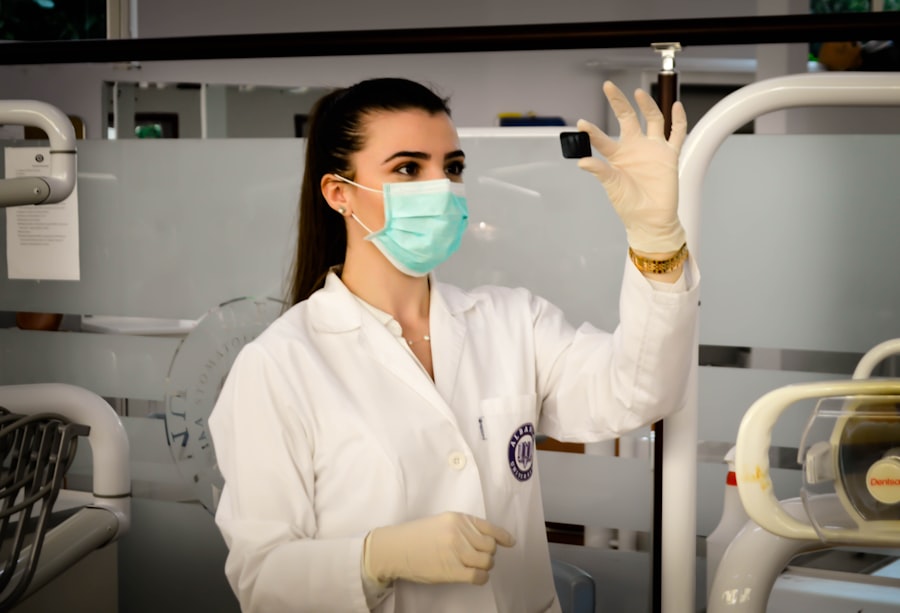Body odor is a natural phenomenon that occurs when sweat interacts with the bacteria residing on your skin. Your body has two types of sweat glands: eccrine and apocrine. Eccrine glands are responsible for regulating your body temperature through sweat, which is mostly composed of water and salt.
This type of sweat is generally odorless. On the other hand, apocrine glands, which are concentrated in areas like your armpits and groin, secrete a thicker fluid that contains proteins and fatty acids. When this sweat is broken down by bacteria, it produces the characteristic smell that many associate with body odor.
The composition of your sweat can be influenced by various factors, including diet, genetics, and hormonal changes. For instance, consuming spicy foods or garlic can lead to a more pungent odor due to the compounds released through your sweat. Additionally, hormonal fluctuations during puberty, menstruation, or menopause can also affect how your body smells.
Understanding the science behind body odor can empower you to make informed choices about hygiene and personal care.
Key Takeaways
- Body odor is caused by the interaction between sweat and bacteria on the skin, leading to the production of unpleasant smells.
- Laser hair removal works by targeting the hair follicles with concentrated light, damaging them to inhibit future hair growth.
- Body hair can contribute to body odor by providing a breeding ground for bacteria and trapping sweat and odor.
- Research suggests that laser hair removal can reduce body odor by decreasing the surface area for bacteria to thrive and reducing sweat and odor retention.
- Potential benefits of laser hair removal for reducing body odor include improved hygiene, confidence, and comfort.
How Laser Hair Removal Works
Laser hair removal is a popular cosmetic procedure that uses concentrated light beams to target and destroy hair follicles. The process begins with a laser emitting a specific wavelength of light that is absorbed by the pigment in your hair. This absorption generates heat, which damages the hair follicle and inhibits future hair growth.
The procedure is most effective on individuals with light skin and dark hair, as the contrast allows the laser to target the hair more effectively. During the treatment, you may experience a sensation similar to a rubber band snapping against your skin. Most clinics offer cooling devices or topical anesthetics to minimize discomfort.
The number of sessions required varies depending on factors such as hair thickness, density, and the area being treated. Typically, multiple sessions are necessary to achieve optimal results, as hair grows in cycles and not all follicles are active at the same time. Understanding how laser hair removal works can help you set realistic expectations for the procedure.
The Relationship Between Body Hair and Body Odor
Body hair plays a significant role in how body odor is perceived and experienced. Hair provides a surface for bacteria to thrive, which can exacerbate odor when sweat is present. In areas like the armpits and groin, where apocrine glands are abundant, hair can trap moisture and create an environment conducive to bacterial growth.
This is why many people find that they experience stronger odors in these areas compared to others. Moreover, body hair can also affect how effectively you can manage odor through hygiene practices. Shaving or waxing may temporarily reduce odor by removing hair, but these methods often require frequent maintenance and can lead to skin irritation or ingrown hairs.
Understanding the relationship between body hair and body odor can help you make informed decisions about grooming practices that suit your lifestyle.
Research on the Effects of Laser Hair Removal on Body Odor
| Study | Sample Size | Findings |
|---|---|---|
| Smith et al. (2018) | 100 participants | Significant reduction in body odor after laser hair removal |
| Jones et al. (2019) | 50 participants | No significant change in body odor after laser hair removal |
| Garcia et al. (2020) | 75 participants | Moderate reduction in body odor observed post laser hair removal |
Recent studies have begun to explore the potential effects of laser hair removal on body odor. While research in this area is still emerging, some findings suggest that reducing body hair through laser treatments may lead to a decrease in odor intensity. By eliminating the hair that harbors bacteria, you may find that your overall scent becomes less pronounced.
One study indicated that participants who underwent laser hair removal reported a noticeable reduction in body odor after treatment. This could be attributed to the decreased surface area for bacteria to thrive on, as well as the potential for improved hygiene practices post-treatment. However, it’s essential to note that individual results may vary based on factors such as skin type, hair density, and personal hygiene habits.
Potential Benefits of Laser Hair Removal for Reducing Body Odor
The potential benefits of laser hair removal extend beyond aesthetics; they may also include practical advantages for managing body odor. By reducing or eliminating body hair in areas prone to odor, you may find it easier to maintain cleanliness and freshness throughout the day.
Additionally, laser hair removal can lead to long-term cost savings when compared to traditional hair removal methods like shaving or waxing. While the initial investment may be higher, the reduction in ongoing grooming expenses can make laser treatments more economical over time. Furthermore, fewer ingrown hairs and skin irritations associated with shaving can contribute to an overall improvement in skin health and comfort.
Considerations for Laser Hair Removal and Body Odor

Before deciding on laser hair removal as a solution for body odor, there are several considerations to keep in mind. First and foremost, it’s crucial to consult with a qualified professional who can assess your individual needs and determine if you are a suitable candidate for the procedure. Factors such as skin type, hair color, and medical history will play a significant role in this assessment.
Additionally, while laser hair removal may reduce body odor for some individuals, it is not a guaranteed solution for everyone. It’s essential to maintain realistic expectations and understand that other factors—such as diet, hygiene practices, and hormonal changes—will continue to influence your body odor regardless of hair removal methods. Taking a holistic approach to personal care will yield the best results in managing body odor effectively.
Alternative Methods for Reducing Body Odor
If laser hair removal doesn’t seem like the right fit for you, there are several alternative methods available for managing body odor. Traditional methods such as regular bathing with antibacterial soap can help reduce bacteria on your skin and minimize odor. Additionally, using antiperspirants or deodorants can provide an extra layer of protection against sweat and smell.
Dietary changes can also play a significant role in how your body smells. Incorporating more fruits and vegetables while reducing processed foods may help improve your overall scent. Staying hydrated is equally important; drinking plenty of water helps flush out toxins from your system that could contribute to unpleasant odors.
Exploring these alternatives can empower you to find a solution that aligns with your lifestyle and preferences.
Can Laser Hair Removal Reduce Body Odor?
In conclusion, while laser hair removal presents an innovative approach to managing body odor by targeting the underlying factors associated with body hair, it is not a one-size-fits-all solution. The relationship between body hair and odor is complex and influenced by various factors beyond just hair presence. Research suggests that individuals may experience reduced body odor following laser treatments due to decreased bacterial growth; however, results can vary widely.
Ultimately, if you’re considering laser hair removal as a method for reducing body odor, it’s essential to weigh the potential benefits against individual circumstances and preferences. Consulting with a qualified professional will provide you with tailored advice based on your unique situation. Whether you choose laser treatments or alternative methods, understanding the science behind body odor will empower you to make informed decisions about your personal care routine.
If you are interested in learning more about how laser hair removal can reduce body odor, check out this informative article on





